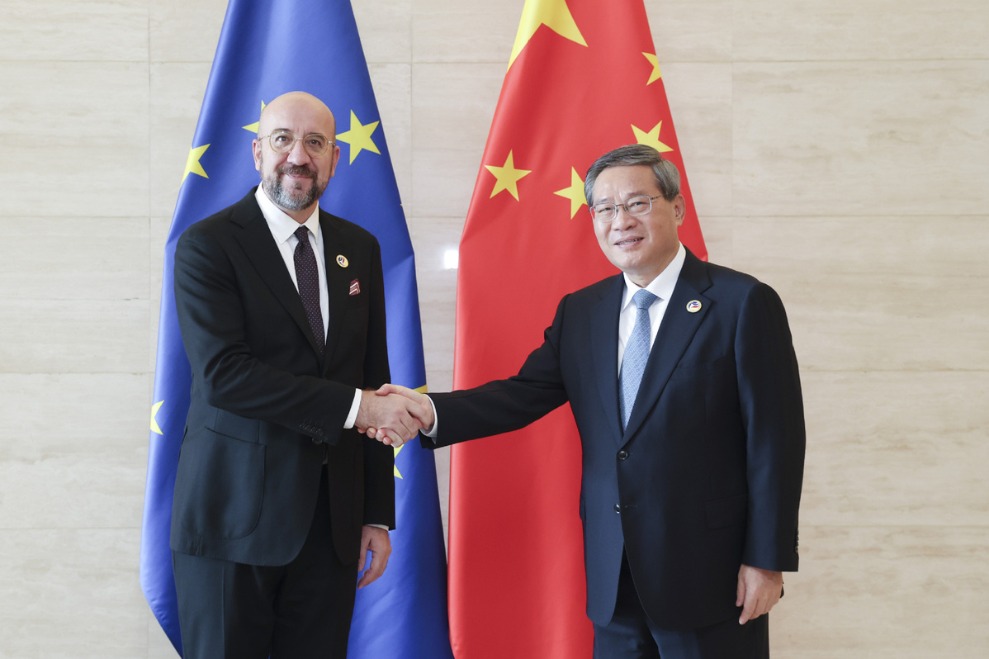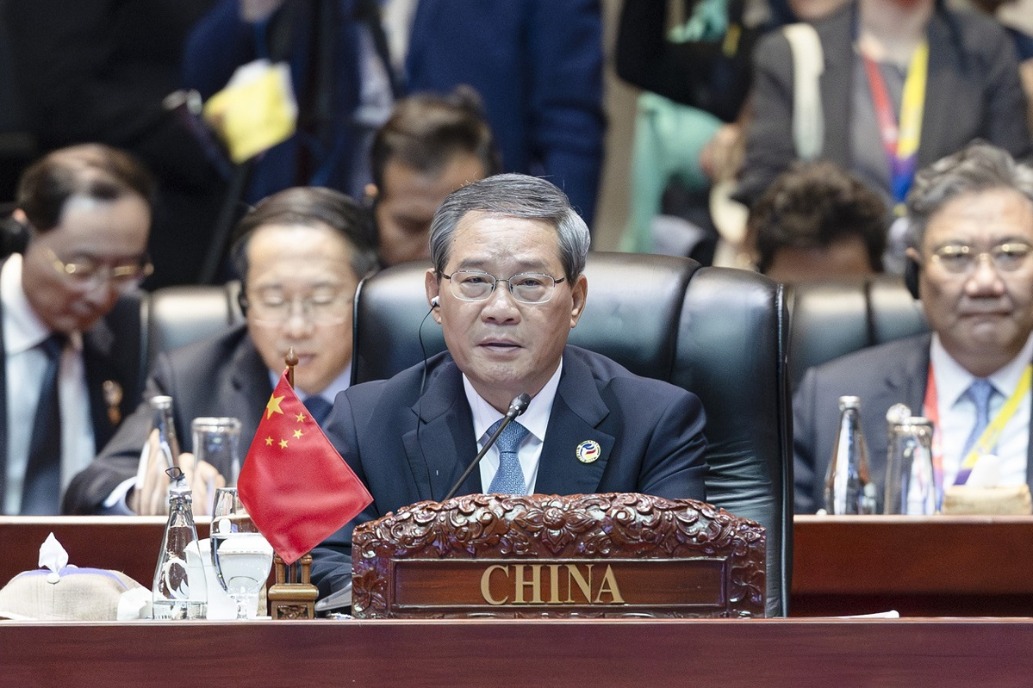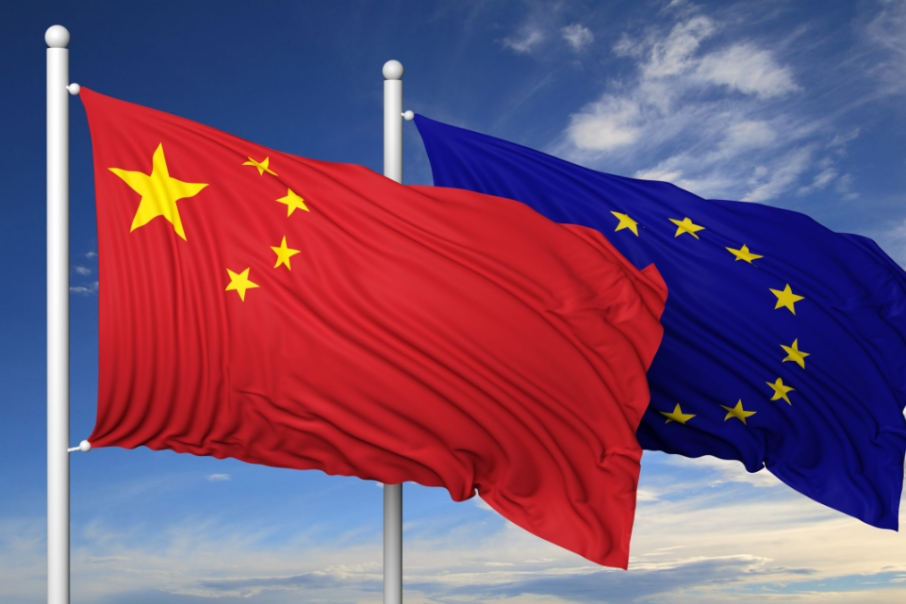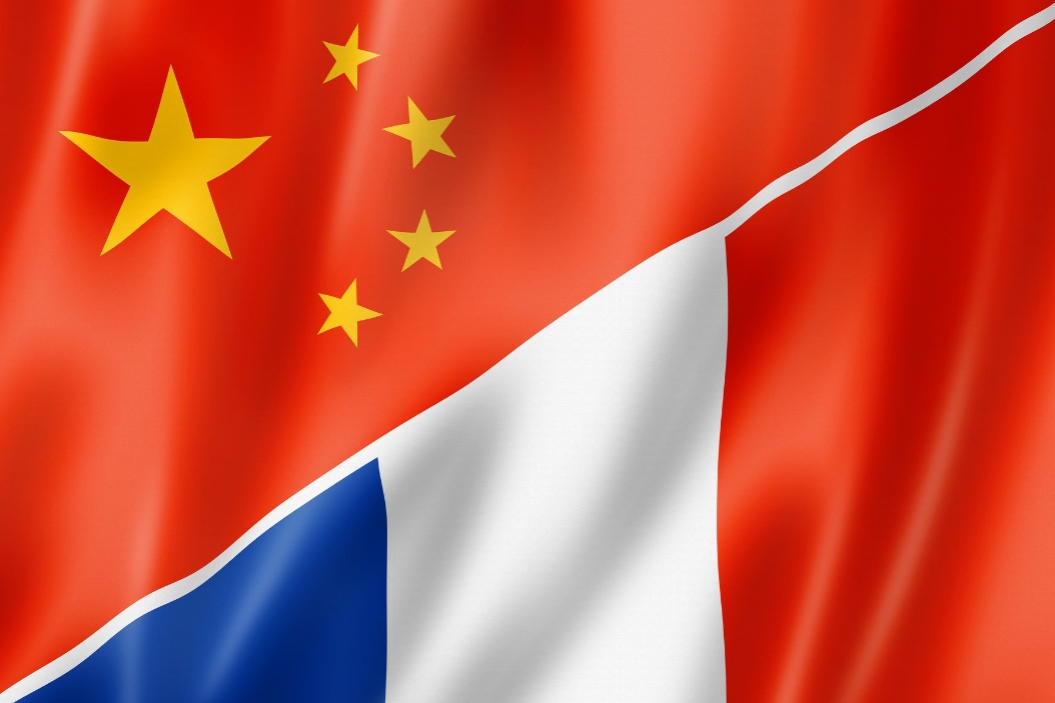Belt and Road Initiative on agenda for Danish PM's China visit

 |
| President Xi, right, meets with Danish Prime Minister Lars Loekke Rasmussen in Washington, on March 31, 2016 file photo. [Photo/Xinhua] |
Danish Prime Minister Lars Loekke Rasmussen has called China's proposed Belt and Road Initiative "a future dynamo" for growth and prosperity in Asia and Europe.
Ahead of his four-day visit to China starting Tuesday, Rasmussen said he would use his trip to further boost his country's relationship with China, pledging to participate in the Belt and Road Initiative.
"The Belt and Road Initiative is indeed a very interesting foreign policy strategy," Rasmussen said. "Further connecting Europe and Asia firmly through trade and bilateral cooperation can hopefully be a future dynamo for growth and prosperity for both continents."
President Xi Jinping, Premier Li Keqiang and China's top legislator Zhang Dejiang are scheduled to meet or hold talks with Rasmussen, and will exchange views on bilateral ties and issues of common concern.
Rasmussen's visit is among the recent high-level exchanges between China and the Nordic countries. Shortly after Xi's visit to Finland in early April, Norwegian Prime Minister Erna Solberg paid a visit to China to enhance bilateral relations.
Rasmussen visited China in 2010 during his previous term as Danish prime minister. His current term started since June 2015.
Rasmussen said he hoped the Belt and Road Initiative could provide economic stability and development for Central and South Asia –gateways between East Asia and Europe.
"This will be crucial for trade between the two biggest concentrations of economic power," he said.
The Danish prime minister also said his country – as one of the world's foremost shipping nations - has been engaged in linking the two continents for centuries.
This visit happens several days before the highly-anticipated Belt and Road Initiative Forum for International Cooperation on May 14 to 15 in Beijing. He said his country's representatives will be attending and "be happy to contribute" positively on both political and business level during the conference.
Rasmussen said China is Denmark's largest trading partner in Asia and his country was the first Nordic country to sign a comprehensive strategic partnership with China.
"We will now take our bilateral relationship to a new high," he said, "I am particularly pleased that we will launch our first 'Joint Work Program' during my visit."
Rasmussen revealed that the program contains 58 concrete joint cooperation areas toward 2020 between 80 Chinese and Danish state institutions, saying this will take the cooperation between the institutions of both sides one important step further.
During his visit, he said both sides will sign new agreements to strengthen economic and trade cooperation. For instance, he said a Chinese-Danish Food and Drug Regulatory Cooperation Center will be launched and it will help facilitate knowledge-sharing between public authorities in the two countries.
In terms of cultural and people-to-people exchanges, the prime minister said the two countries will sign a bilateral film agreement that allows China and Denmark to work on co-productions in the film area.
Rasmussen also said that Denmark and China have a close cooperation on international issues.
"We are both trading nations and strong supporters of free trade and increased global cooperation," said Rasmussen.
From the United Nations and climate change to the China-led Asian Infrastructure Investment Bank and Belt and Road Initiative, Rasmussen said there were many global issues with potential to deepend cooperation between both countries.
Rasmussen said he has met with President Xi on several occasions including the Nuclear Security Summit in 2016. "We've had very cordial and fruitful discussions during all our meetings – and it has led to many of the results that we now finalize in China during this visit," he said.
He also said that President Xi gave a very fine speech at the World Economic Forum in Davos in January and Denmark supports any efforts to stick to the road of trade liberalization and "better globalization". "Anything that China does will have an effect not only in Asia but on the rest of the world," said Rasmussen. "We wish to join China on this trip."
fujing@chinadaily.com.cn

































